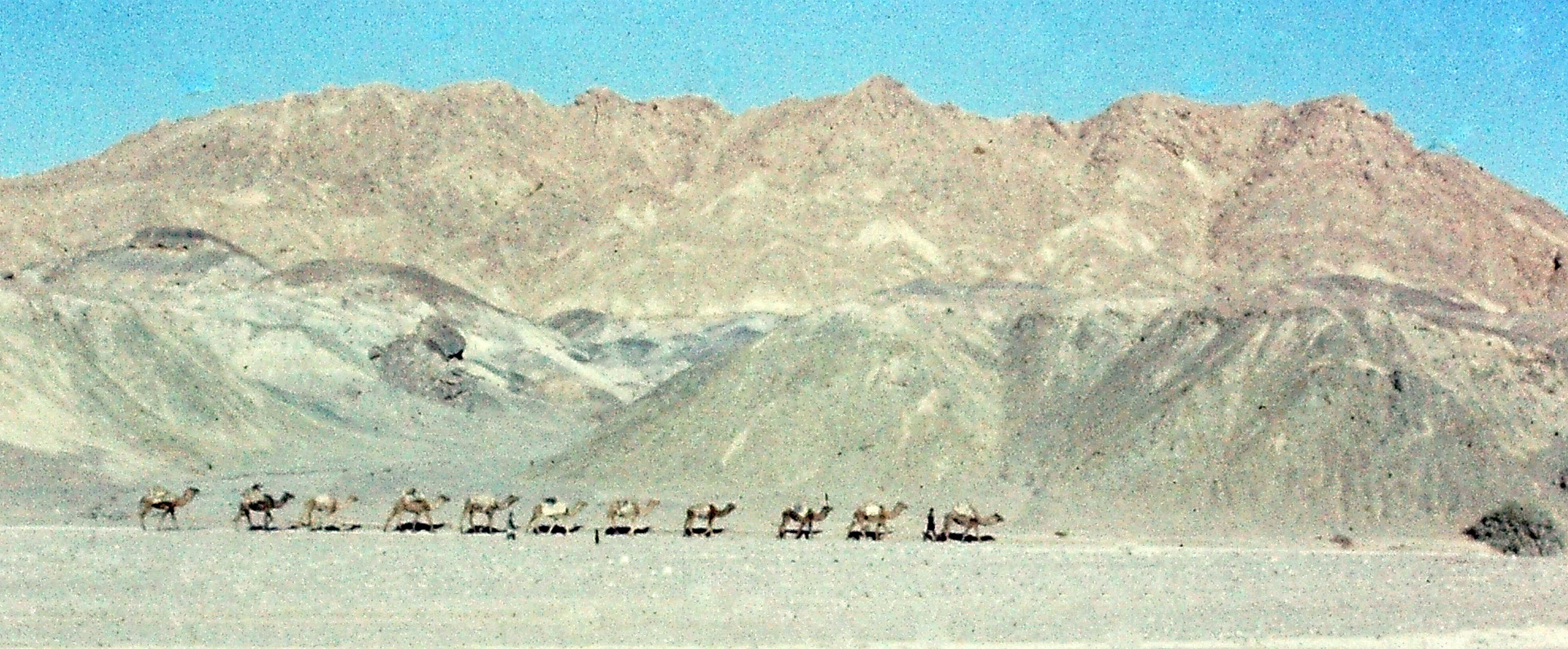October 6, 1973 - The Yom Kippur War started as Egypt and Syria launched attacks on Israeli positions on the East Bank of the Suez and the Golan Heights.
October 6, 1978 - Iranian religious leader Ayatollah Khomeini was granted asylum in France after being expelled from Iran for his opposition to the Shah.
October 6, 1981 - Egyptian President Anwar Sadat was assassinated in Cairo by Muslim fundamentalists while watching a military parade. He had signed an American-sponsored peace accord with Israel but had been denounced by other Arab leaders.
October 7, 1949 - The German Democratic Republic came into existence in East Germany. Dominated by Soviet Russia, it lasted until German reunification in 1990.
October 10, 1954 - Ho Chi Minh entered Hanoi, Vietnam, after the withdrawal of French troops, in accordance with armistice terms ending the seven-year struggle between Communist Vietnamese and the French.
October 15, 1964 - Soviet Russia's leader Nikita Khrushchev was deposed as First Secretary of the Soviet Communist Party and replaced by Leonid Brezhnev.
October 16, 1964 - China detonated its first nuclear bomb at the Lop Nor test site in Sinkiang.
October 22, 1962 - President John F. Kennedy appeared on television to inform Americans of the existence of Russian missiles in Cuba. The President demanded their removal and announced a naval "quarantine" of Cuba. Six days later, the Russians announced they would remove the weapons. In return, the U.S. later removed missiles from Turkey.
October 23, 1956 - A Hungarian uprising against Communist rule began with students and workers demonstrating in Budapest. Soviet Russians responded by sending in tanks and put down the revolt after several days of bitter fighting.
October 23, 1983 - Terrorists drove a truck loaded with TNT into the U.S. and French headquarters in Beirut, Lebanon, exploding it and killing 241 U.S. Marines and 58 French paratroopers.
October 23, 1989 - Hungary declared itself a republic, 33 years after Soviet Russian troops crushed a popular revolt against Communist rule.
October 23, 1990 - Ukrainian Prime Minister Vitaly Masol resigned after mass protests by students, becoming the first Soviet official of that rank to quit under public pressure.
October 25, 1955 - Austria reassumed its sovereignty with the departure of the last Allied forces. The country had been occupied by the Nazis from 1938-45. After World War II, it was divided into four occupation zones by the U.S., Russia, Britain and France.
27 October 1962 - A U-2F, piloted by USAF Major Rudolf Anderson, was shot down by a S-75 Dvina (NATO designation SA-2 Guideline) surface-to-air missile launched from Cuba. Anderson was killed.
28 October 1962 - The Cuban Missile Crisis ended with the announcement by Soviet Russia's leader Nikita Khrushchev that his Soviet government was halting construction of missile bases in Cuba and would remove the offensive missiles. President Kennedy accepted the offer then lifted the U.S. naval blockade of Cuba.
30 October 1956 - A joint British and French force invaded Egypt to regain control of the Suez Canal which had been nationalised by the Egyptian leader Nasser. The British and French were forced to withdraw and a UN peace keeping force was sent to establish order.





